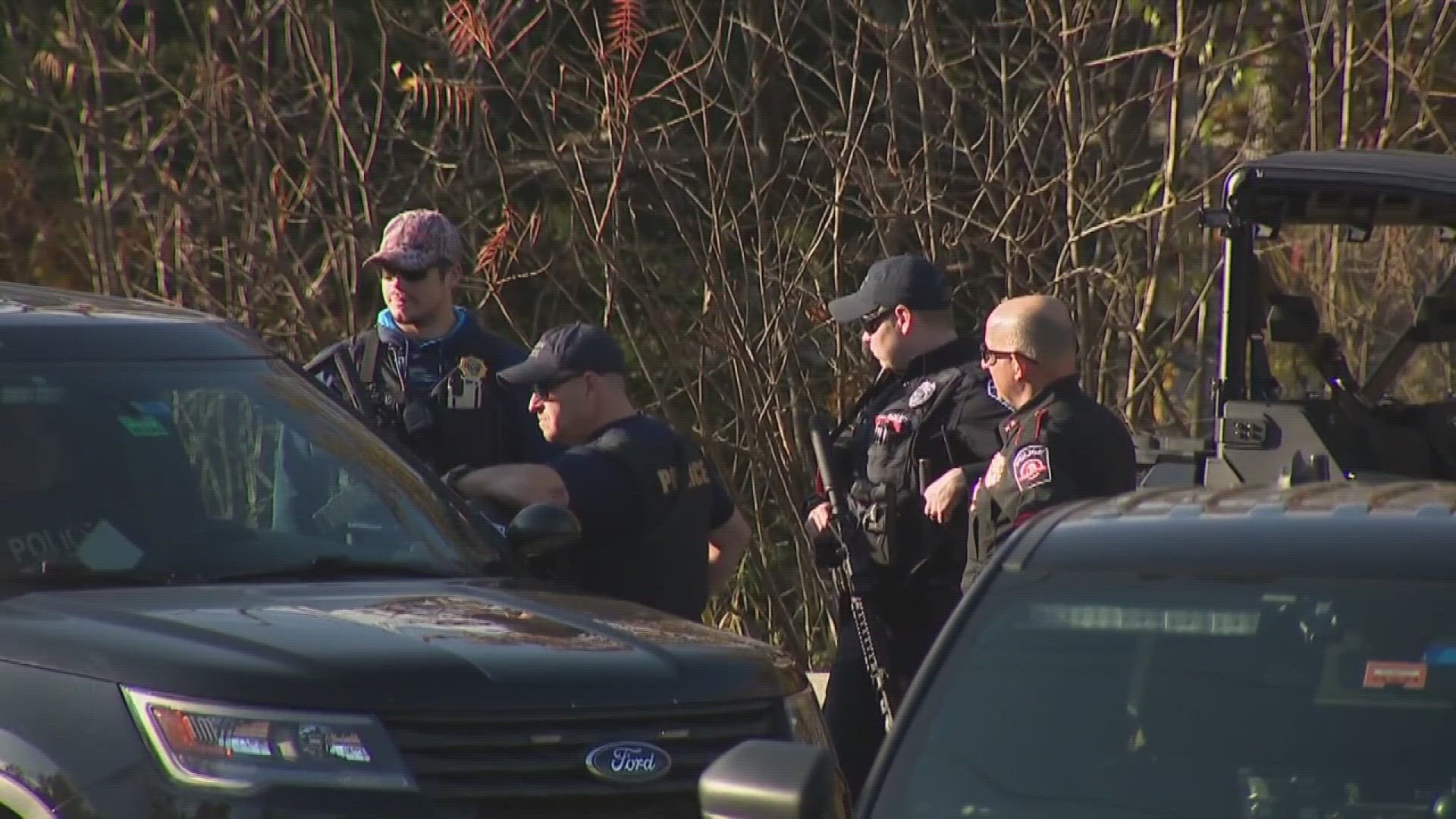LISBON, Maine — Authorities say the man suspected of carrying out the mass shooting that claimed the lives of 18 people in Lewiston purchased his firearms legally. It remains unclear why his reported mental health issues earlier this year didn't trigger Maine's Yellow-Flag law.
When asked about it Saturday night, Lisbon Police Chief Ryan McGee said he too is "waiting to hear more details on that."
The Yellow-Flag law is designed to give law enforcement the power to take guns out of the hands of people who could be a danger to themselves or others.
In the lead up to the fatal shooting, authorities say suspected shooter Robert Card exhibited clear warning signs.
"The mental health aspect of this, there's a piece of that," said Maine Department of Public Safety Commissioner Michael Sauschuck at a news conference Saturday.
He added that evidence suggests Card may have been paranoid and hearing voices.
A statewide alert was sent to law enforcement last month after Card reportedly made threats against the U.S. Army Reserve base where he trained, according to the Associated Press.
"Concerned" about his behavior in the last couple months, Card's family alerted authorities, according to NBC News.
The AP also reports that "a bulletin sent to police shortly after this week’s attack said Card had been committed to a mental health facility for two weeks after 'hearing voices and threats to shoot up' a military base."
"If in fact the suspect was hospitalized for two weeks for mental illness, that should have triggered the yellow flag law and he should have been separated from his weapons," said Senator Susan Collins on Thursday.
Though she added that she didn't have full knowledge of how things played out in Card's case.
So far, publicly available information about what went wrong is still limited. However, a review of the Yellow-Flag law's text and comments from law enforcement suggest potential problems with its implementation.
The text requires a multi-part process before law enforcement can seize someone's firearm.
First, authorities have to take a suspect into "protective custody."
Next, law enforcement must get a "medical practitioner" to determine that the suspect "presents a likelihood of foreseeable harm."
Once they've done that, authorities must then obtain an "endorsement' of the medical practitioner's determination.
Only after all those steps have been completed does law enforcement have the power to compel someone to surrender their firearms.
In such a process, communication becomes critical at every stage.
Initial tips to law enforcement are vital, said Lisbon Police Chief Ryan McGee.
"We really need the community to tell us ... if someone's having a mental health problem," said McGee. "If they relay that information to us and tell us that they have a firearm, we've seized multiple firearms here in Lisbon."
But communication between authorities is also vital.
Despite a raft of reported warnings, the FBI said in a statement released to NEWS CENTER Maine on Sunday that their National Threat Operations Center "did not have nor did it receive any tips or information concerning Robert Card."
The FBI's National Criminal Background Check system also "was not provided with or in possession of any information that would have prohibited Card from a lawful firearm purchase," the statement continued.
Commissioner Sauschuck said this weekend that authorities are still working to access Robert Card’s full mental health records as they continue their investigation.

